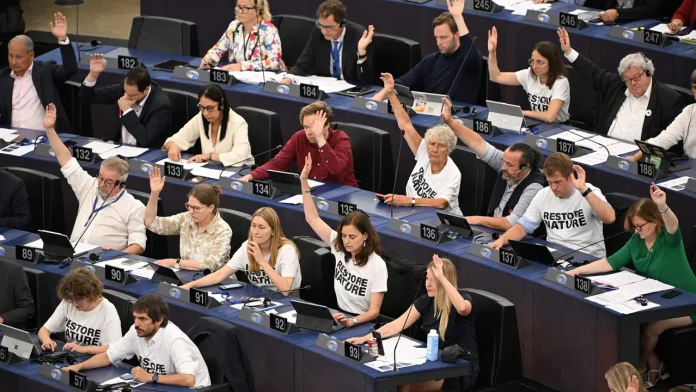On Thursday, negotiators from EU countries and the European Parliament agreed a landmark new law to restore at least 20 per cent of Europe’s land and sea areas by 2030, as well as all ecosystems in need of restoration by 2050, according to Euractiv.
Teresa Ribera, Spain’s ecological transition minister, who represented the 27 EU countries at the talks, declared:
We are faced with an increasingly dramatic reality: The EU’s nature and biodiversity are in danger and need to be protected.
Thanks to the agreement, the EU will travel to the international climate conference COP28 with “an important building block for mitigating the climate crisis and adapting to climate change,” Jutta Paulus, negotiator for the Green Party in the European Parliament, stated.
“The world’s first law on nature restoration is as good as finalised. The compromise on the Nature Restoration Law is a good basis for finally counteracting the extinction of species in Europe”
Within two years of the law coming into force, EU countries will have to draw up national recovery plans outlining measures to restore devastated ecosystems by June 2032. Thereafter, they will have to monitor and report on their progress.
If you have an outcome-based approach and you do not reach the goals, then you have to apply additional measures […] whereas now you say okay, I tried, but unfortunately, it didn’t turn out the way I wanted to.
The law outlines measures and targets for specific ecosystems, including forests, agricultural land, urban ecosystems, freshwater and marine ecosystems.
For example, in forests, EU countries will have to take measures that improve biodiversity and reduce the amount of dead wood. Meanwhile, in urban areas, EU countries must ensure that there is no net loss of green spaces and vegetation cover by 2030, unless green spaces are already 45 per cent.
The agreement also obliges EU countries to identify and remove artificial barriers to ensure that at least 25,000 kilometres of rivers are free-flowing by 2030.
The controversial measures on agricultural ecosystems have drawn strong opposition from the centre-right European People’s Party (EPP), the largest political group in parliament. EPP negotiator Christine Schneider (CDU, Germany) welcomed the deal and “the fact that the final text on this law has little to do with the original proposal from the Commission.”
Conservation group WWF welcomed plans to increase the nature of farmland and peatland restoration in the law, but pointed to “significant concessions” such as emergency braking “to freeze farmland targets in case they impact food security or production.”
“While we are pleased to see that all ecosystems originally covered by the law are still included in the agreement, the articles have been watered down compared to the original Commission proposal and the Council’s position.”
Ionnis Agapakis from ClientEarth stated:
We finally have a much-needed law that, in theory, would force the EU to take concrete action to restore its ailing nature. However, negotiators have hollowed out the law to the point that it risks being toothless in practice and prone to abuse.
The agreed law still needs to be formally signed by the European Parliament and the 27 EU countries. It is not known whether EPP will support the final agreement for it to become law.
